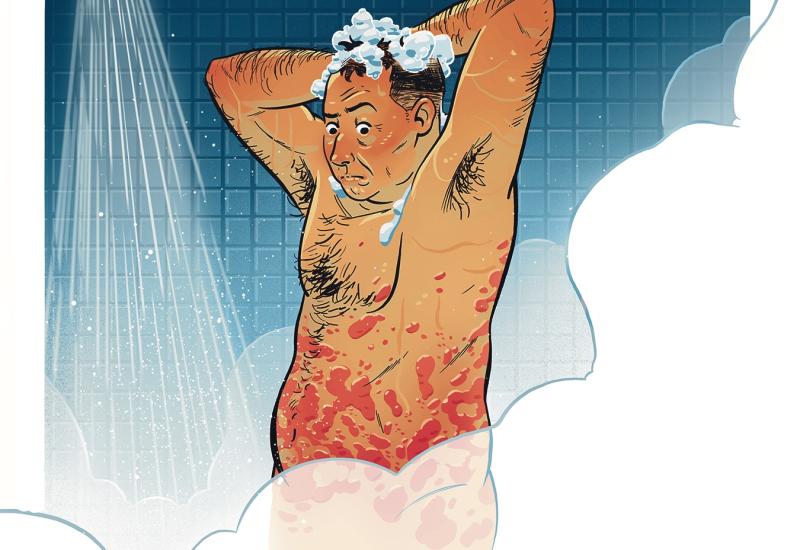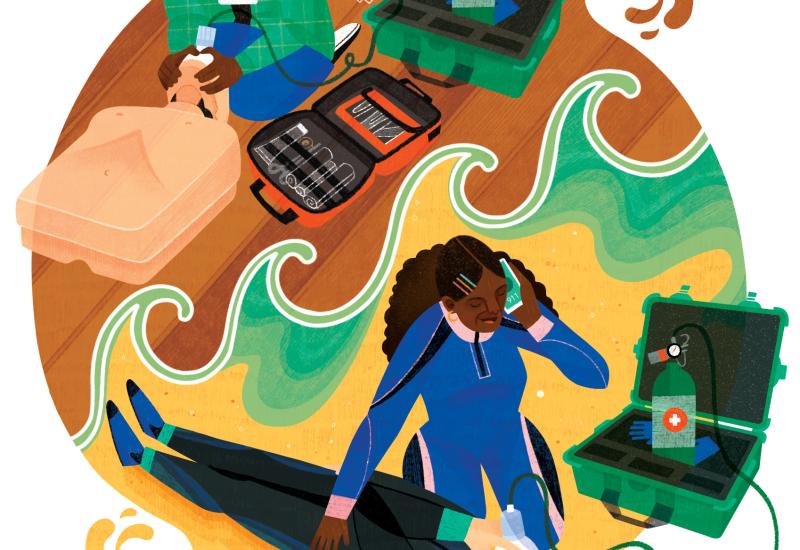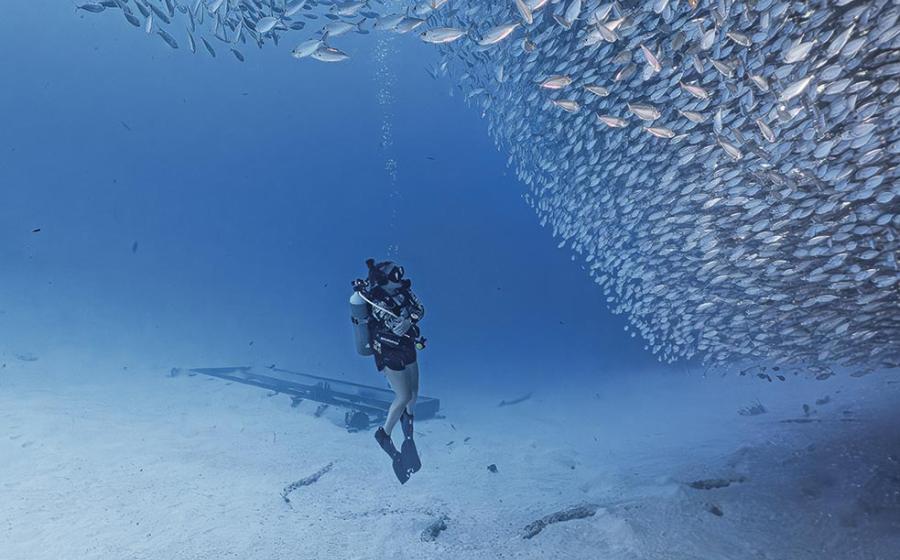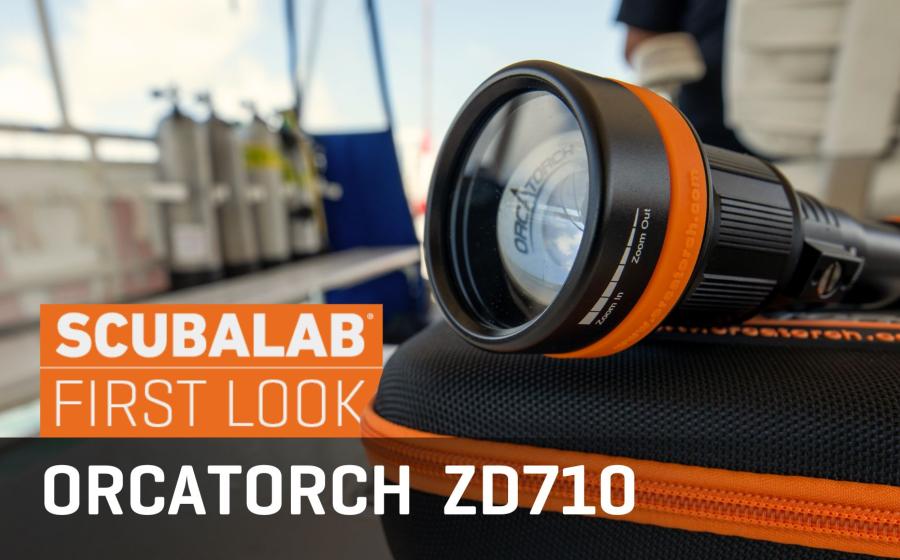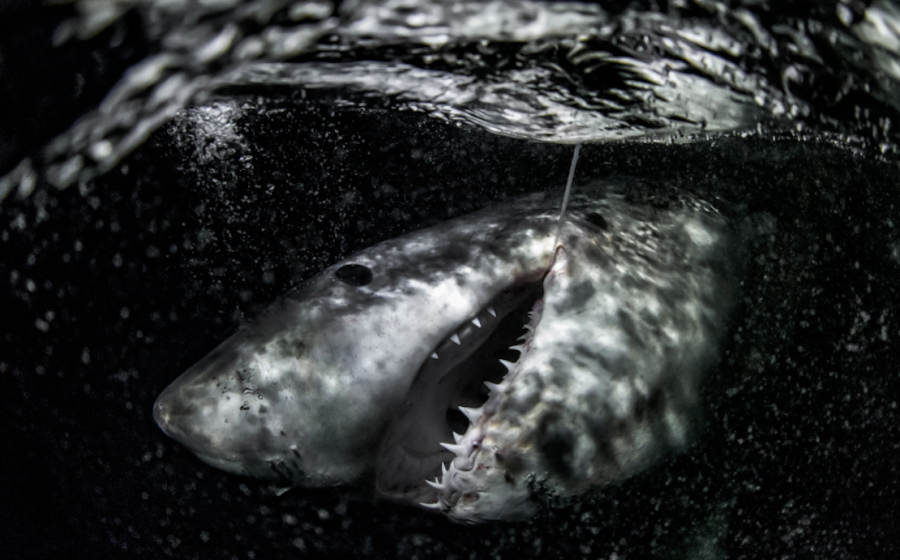Ask Annie: Do I Have Enough Dive Experience to Go Pro?
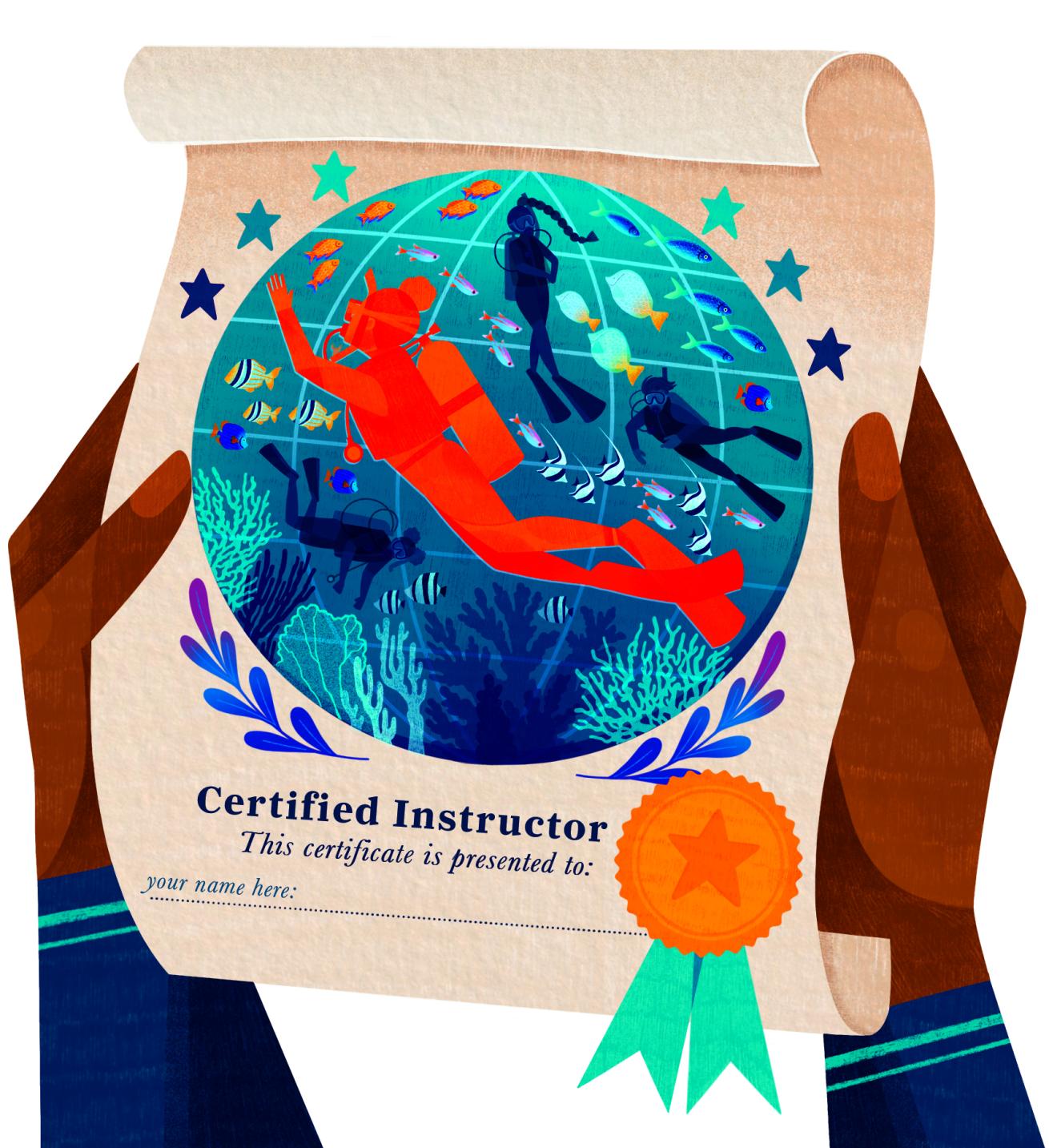
Illustration by Lauren Rebbeck
Dear Annie,
I’m a New Diver. I’m Considering an Intensive Six-Week Instructor Program in Utila, But I Don’t Know If I’m Experienced Enough to take that Next Step. Is it Too Soon to Go Pro?
-Future Pro
Dear Future Pro,
Sounds like we had similar “Aha!” moments when we learned to dive. From my first breath underwater, scuba stole my heart. I remember looking at my instructor and thinking, “I love this so much; I could do your job.” Sound familiar?
I dived my way from open-water to divemaster in six months. It took me another year to raise the funds and meet the criteria to become an instructor. After I landed my first job teaching diving in Indonesia, I never looked back. I grew as a diver by teaching and continuing to learn.
If you are mentally and physically ready, it’s not too soon to go pro in your first year of diving. It allows you to dive more while working, traveling and developing your skills.
Related Reading: Ask Annie: How Do I Prepare for My First Boat Dive?
Places like Utila, Australia and Thailand are known within the industry for running intensive multiweek dive internship programs. If you are a PADI Rescue Diver with reasonable experience and can’t do a multiweek program, you can become a PADI Divemaster or Open Water Scuba Instructor in eight to 10 days.
Shorter programs are extremely rigorous and ideal for divers who already have a lot of experience and perhaps tighter schedules. For newer divers like yourself, the internship route helps develop you as a diver while you learn to become a professional.
If you learn in the warm, clear waters of Utila, you will be qualified to teach in similar waters. If you plan to teach in more temperate waters, consider completing your training with a dive shop that functions in those conditions, or seek out instructors to mentor you in those conditions once you complete your internship in Utila.
As a professional, the breadth of your knowledge and experience matters. Seek training to make yourself a well-rounded diver who is knowledgeable about the industry. Take a course in gear maintenance and familiarize yourself with different brands of equipment, not just the equipment you use.
Dive professionals are responsible for problem-solving equipment and skill issues. Learn about your local dive environment, and get involved with PADI AWARE courses. Mission-driven diving and citizen science opportunities have exploded around the world and shifted the diving culture over the years.
Future Pro, your life will expand as you take on this next adventure. After taking the plunge, document your progress with journals, photos and videos. I can’t wait to hear back from you once you teach your first students and lead your first dive. This journey is exhilarating and slightly nerve-wracking. And at the same time, it is the best feeling in the world. Keep learning, keep diving and share the passion!
No matter which route you take to become an instructor, an Instructor Development Course (IDC) teaches you how to teach. I’ve used the methods, leadership and coaching skills from the IDC in all aspects of my life. You don’t have to be great to get started, but you do have to get started to be great!
Ready to start your professional career? Learn what it takes to become a PADI professional here.

Ask Annie
PADI Instructor Annie Crawley answers your most pressing questions about dive etiquette, training qualms and gear analysis with zero judgment and a whole lot of lived experience.
Have a question for Annie? Send to [email protected] with the subject "Ask Annie."


